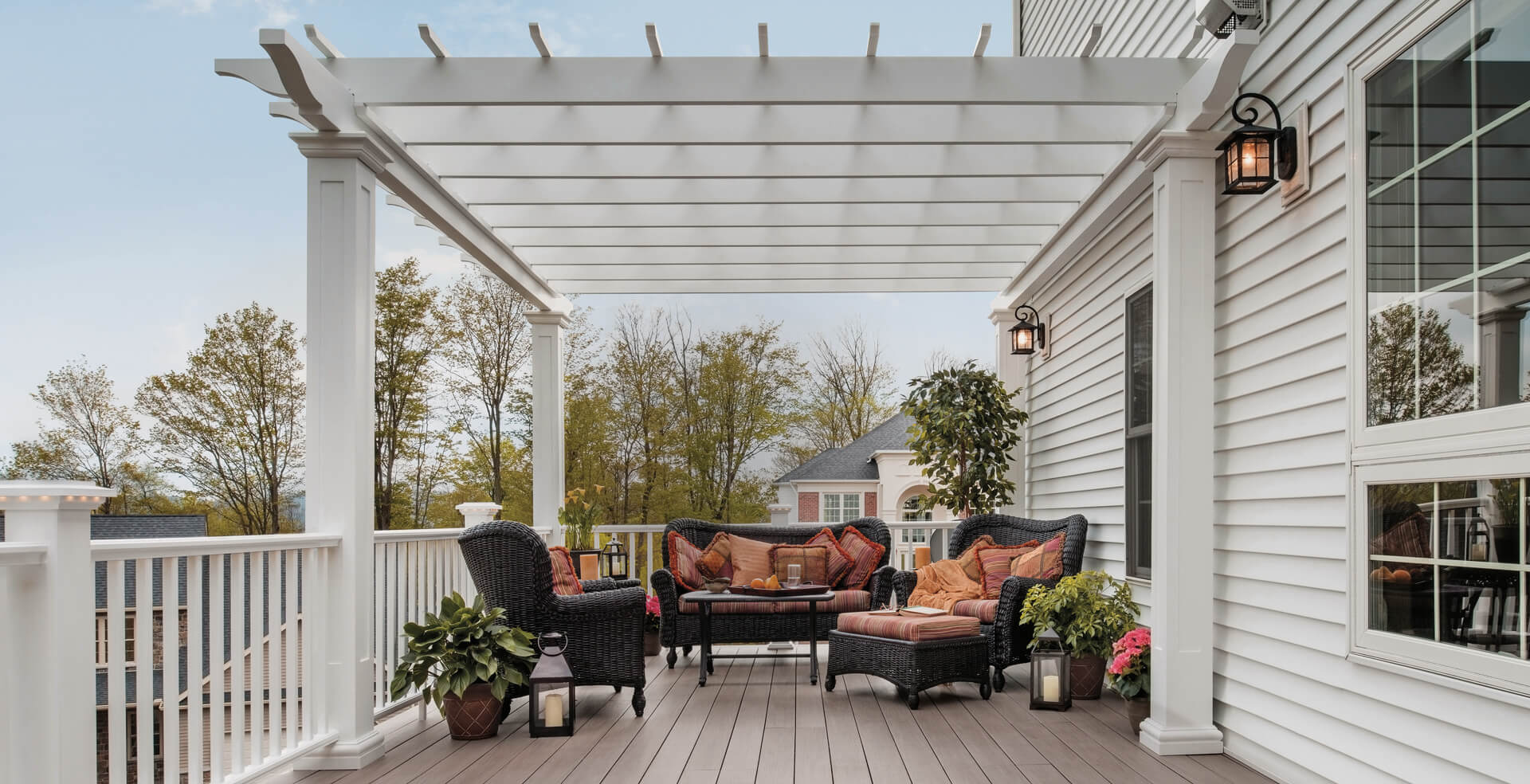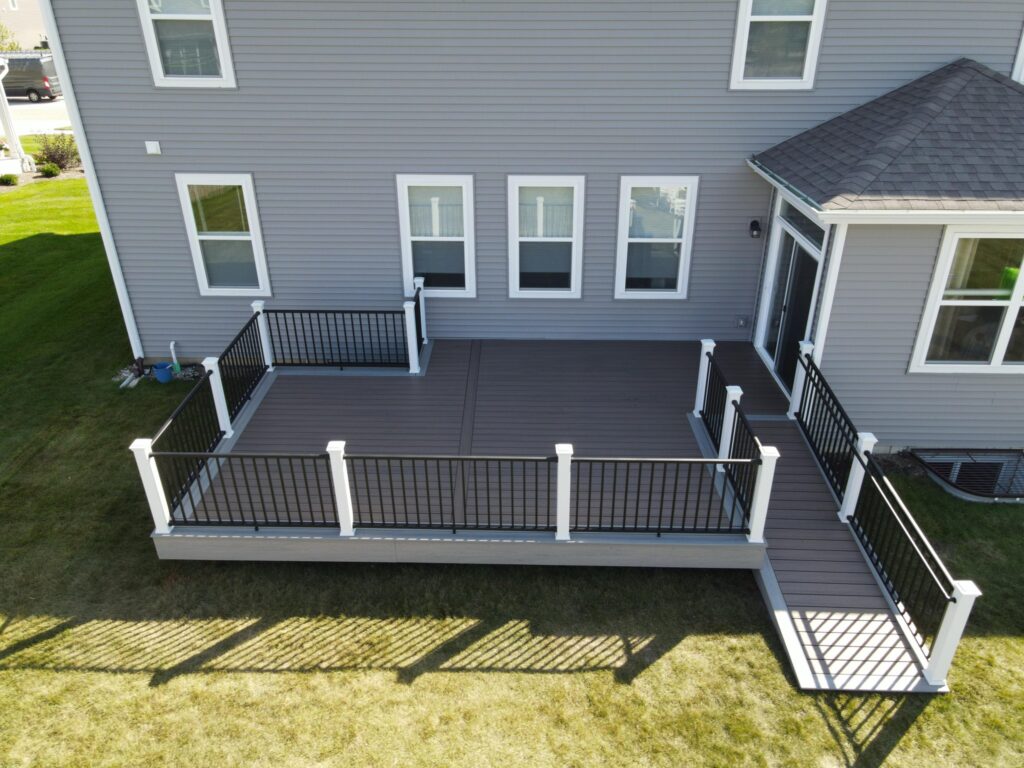Discovering Various Kinds and Benefits of Deck: A Comprehensive Guide
The exterior deck is even more than just an extension of one's living area; it's a testimony to individual style, a place for social gatherings, and a haven to loosen up. The choice of decking material dramatically affects these aspects, with choices varying from the timeless attraction of timber to the usefulness of composite, and the resilience of light weight aluminum. Understanding the subtleties of these materials is crucial, so allow's begin our exploration, one deck type at once.
Comprehending the Fundamentals of Decking Material
Outdoor decking material functions as the foundation of any kind of deck task, determining the overall appearances, resilience, and functionality of the last item. The marketplace uses a huge range of products, each with special attributes fit to numerous style preferences and environmental problems. The option consists of all-natural timber, composite, plastic, aluminium, and even concrete. Timber, being the typical choice, offers an ageless, traditional appeal. Composite, a mixture of timber and plastic, uses wood-like appearances with much less maintenance. Plastic and aluminium provide modern-day, minimalistic choices, while concrete is favored for its unrivaled resilience. The selection of product considerably affects the deck's life expectancy, maintenance needs, and resistance to elements. For that reason, understanding the essentials of decking product is critical for an effective deck project.
Advantages and Drawbacks of Timber Decks
In evaluating deck types, understanding the benefits and drawbacks of timber decks becomes important. This entails taking into consideration elements such as the kind of timber picked and its effect on the deck's efficiency. The succeeding discussion will explore these points carefully to supply a thorough sight of the downsides and benefits related to timber decks.

Wood Deck: Pros & Disadvantages
The appeal of wood decks can not be overemphasized. They radiate an ageless allure and warm visual that lots of property owners find alluring. This all-natural product is flexible, permitting for a variety of design opportunities, and can supply a superb roi.
However, timber decks likewise come with certain disadvantages. They require constant maintenance, including regular cleaning, discoloration or painting, and potential substitute of distorted or rotten boards. Timber is likewise vulnerable to harm from insects and rough climate condition. Its long life can be less than various other decking products, specifically otherwise correctly looked after.
Choosing Your Timber Type

Exploring the Benefits of Composite Decking
Transforming interest to composite outdoor decking, it uses one-of-a-kind benefits. Its toughness outperforms typical wood in extreme weather, minimizing the demand for regular maintenance. It provides a pleasing aesthetic allure with variable layout alternatives.
Composite Decking Resilience Benefits
In spite of the wide variety of outdoor decking choices offered in the market, composite outdoor decking stands out for its resilience. This kind of outdoor decking, made from a mix of timber and plastic, gives a durable, long-lasting platform immune to components that normally deteriorate various other materials. In summary, the resilience advantages of composite decking supply a lasting, cost-efficient service for outside living rooms.
Upkeep of Compound Decks
In addition to longevity, composite decking boasts a significant benefit in regards to upkeep. Unlike conventional wood decks, composite decks are not vulnerable to rot, warp, or insect damages, thus dramatically reducing the need for regular repair services and substitutes. They also need no sanding, staining, or painting, making them a time-saving option for home owners. Cleansing a composite deck is a simple job, commonly just requiring a sweep or a gentle laundry with a moderate soap and water. The low-maintenance nature of composite decks not this content just supplies ease of maintenance yet additionally adds to their lasting cost-effectiveness. This practical advantage, incorporated with the product's integral resistance to weathering and degeneration, makes composite decking a recommended selection for several people looking for a hassle-free and durable outdoor decking service.
Visual Charm and Variability

The Rising Appeal of Aluminum Decks: Why Pick Them?
As the demand for sturdy and low-maintenance decking rises, light weight aluminum decks are increasingly ending up being the best option for numerous homeowners and building contractors. These decks, made from a light-weight yet strong metal, use a number of benefits over conventional wood or composite decks. To begin, aluminum is naturally resistant to the elements, suggesting it will not warp, fracture, or fade in time. This makes it an economical choice over time. Furthermore, its non-porous surface stops the development of fungis, molds, or bugs, ensuring a tidy and healthy outdoor area. Light weight aluminum decks are additionally eco-friendly, as they are typically made from recycled products and can be recycled again at the end of their life expectancy. Last but not least, their sleek and contemporary visual appeal fits well into contemporary home designs.
Upkeep Tips for Different Decking Products
Regardless of the why not find out more selection of outdoor decking products readily available on the marketplace, each comes with its very own collection of upkeep needs to make sure durability and aesthetic allure. All-natural find out this here wood decks call for routine tarnishing or sealing to protect against weather condition damages, while composite decks need periodic cleansing with soap and water to remove spots and debris. On the other hand, aluminum decks need much less maintenance, just needing periodic washing with water to keep them tidy. Treated wood decks, although immune to rot and insects, additionally need regular sealing to keep dampness out. As a result, understanding these maintenance needs is critical for deck owners to optimize their financial investment and keep their decks looking their best for several years to come.
Factors to Consider When Selecting Your Deck Kind
Composite decks resist moisture well, making them suitable for humid or wet areas. While some may want a lavish, exotic timber deck, budget restraints might require an extra cost-effective option like pressure-treated timber. Thus, climate, price, way of living, and maintenance are vital factors to consider in deck choice.
Verdict
Wood decks bewitch with all-natural charm, while composite and aluminum selections use resilience and low upkeep. Prior to committing to a certain deck type, property owners should meticulously take into consideration the advantages, downsides, and maintenance needs of each product.
In reviewing deck types, understanding the pros and disadvantages of wood decks becomes crucial.Despite the huge selection of decking alternatives offered in the market, composite outdoor decking stands out for its toughness. Unlike standard timber decks, composite decks are not vulnerable to rot, warp, or insect damage, hence substantially lowering the need for normal repair work and substitutes. These decks, made from a light-weight yet tough metal, supply several benefits over traditional wood or composite decks. All-natural wood decks need normal staining or sealing to protect against weather condition damages, while composite decks need routine cleansing with soap and water to remove discolorations and particles.